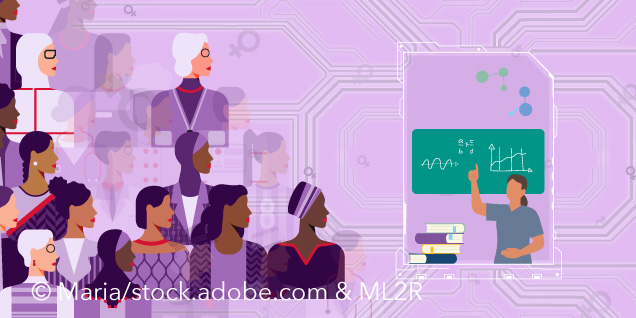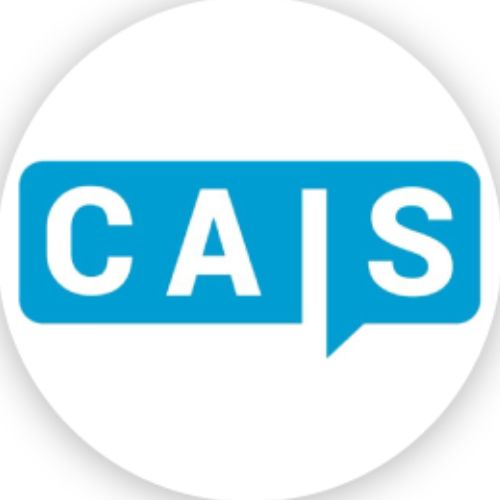
In this post, the research group “Educational Technologies and Artificial Intelligence” at the Center for Advanced Internet Studies (CAIS) takes an educational-psychological perspective on teaching and learning processes, shedding light on the potential role that intelligent educational technologies could play in these contexts. Although intelligent educational technologies are currently scarcely widespread in the German education system, it is necessary to explore their possibilities, limitations, and framework conditions more closely. Overall, intelligent educational technologies are considered to be of future relevance, as Holmes et al. have highlighted in their expertise for the Robert Bosch Foundation. Furthermore, the German Standing Conference of the Ministers of Education and Cultural Affairs (Kultusministerkonferenz) and UNESCO have been discussing the use of intelligent educational technologies for several years.
A vision: Teaching and learning with the help of intelligent educational technologies
Given the complexity of pedagogical actions, it makes sense to utilize the strengths of intelligent educational technologies to support and enhance the work of teachers. Replacing teachers with such technologies, however, is neither possible nor desirable. Therefore, following Michael I. Jordan, we refer to Intelligence Augmentation (IA) rather than Artificial Intelligence (AI).
Teachers play a central role in organizing teaching and learning processes. They design sessions and lesson series, organize and monitor individual learning activities and the development of learners, manage transitions between individual and group work, and continuously support learners in their learning processes. To do this, teachers rely on both their subject knowledge and practical contextual knowledge. Intelligent educational technologies can support the activities of teachers through their ability to quickly process large amounts of data and identify relevant patterns. These technologies are “intelligent” in the sense that they can automatically process digital data generated by learners while using learning platforms (such as Moodle) or learning software (such as ANTON). These analyses are also scalable, meaning that the data of many learners can be processed simultaneously. Based on the automatic analysis of digital data from learning processes, intelligent educational technologies can adaptively support teaching and learning processes (Chen, Chen, & Lin, 2020).
Adaptive support for learners through learning software primarily occurs at a fine-grained level, for instance by selecting appropriate learning tasks within a unit or by providing hints on solution procedures or learning strategies. In this way, learning becomes more individualized or personalized, as materials or additional hints can be better tailored to the learner’s current level of knowledge. Learners can also be shown their progress, which facilitates the monitoring of their own learning processes. This helps them understand their learning as a controllable process and seek additional support if necessary.
In the form of so-called Teacher Dashboards (see van Leeuwen & Rummel for an overview), intelligent educational technologies can also inform teachers about more complex pedagogical decisions. A Teacher Dashboard provides an overview of all learners (including those who may participate less verbally) and supplies the teacher with additional information about the current state of individual learning levels. With this information, relevant assistance can be provided, additional practice opportunities can be scheduled, or the next learning unit can be adjusted. It is also conceivable that the technology could highlight learners or groups of learners who need extra help. The educational technology could even suggest various group compositions for group work phases, which would be particularly productive given the current knowledge levels of the learners.
Opportunities and challenges of intelligent educational technologies
In our view, the greatest potential for innovation in intelligent educational technologies lies in leveraging their strengths to automatically process large amounts of data from learning processes to support teachers’ pedagogical actions. A key outcome of this is the possibility of achieving even stronger differentiation and personalization of learning, which aligns with the OECD’s vision for 21st-century learning.
However, the potential of intelligent educational technologies faces challenges, such as the need to respect data privacy, protect personal privacy, and minimize algorithmic biases. It is also essential to create the necessary technical infrastructures, rethink learning objectives and teaching methods, empirically test the implementation of new educational technologies, ensure their long-term integration, and provide appropriate training and continuing education for teachers. It would be desirable to involve all relevant stakeholders in this process, so that, in addition to political actors and technology providers, educational institutions, teachers, as well as scientists, can contribute to the discourse. This ensures a human-centered design of educational technologies that are pedagogically appropriate and capable of enabling learners to engage in self-directed learning.
Research Group “Educational Technologies and Artificial Intelligence” at the Center for Advanced Internet Studies (CAIS)
